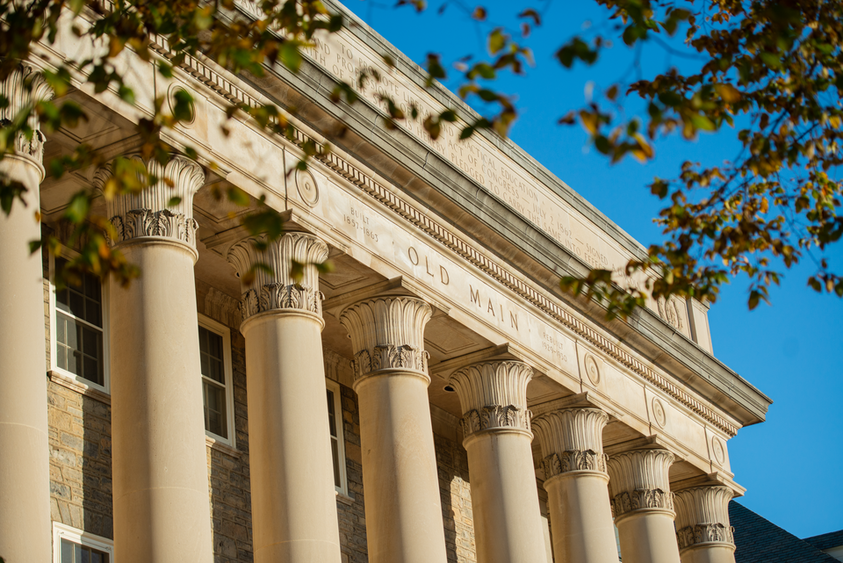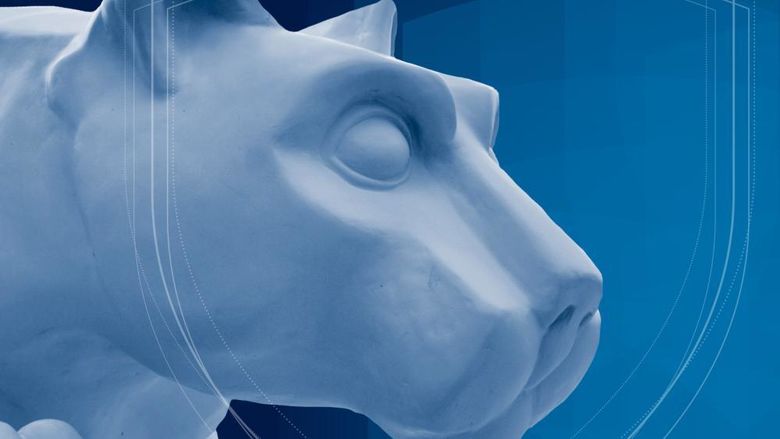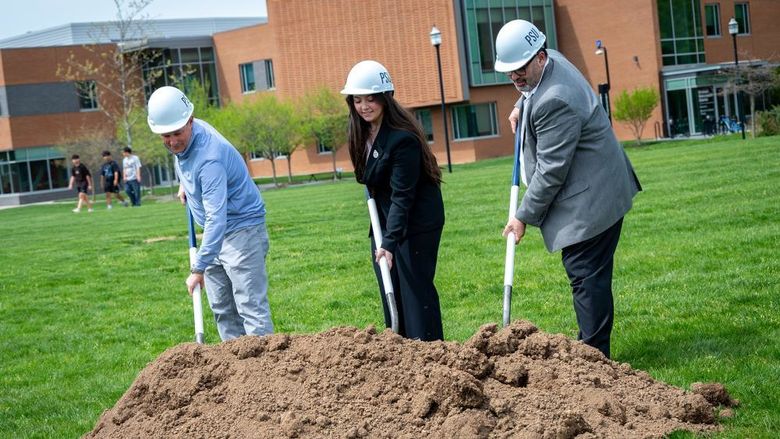
Old Main on Penn State's University Park campus.
UNIVERSITY PARK, Pa. — Penn State's Office of the Vice Provost for Faculty Affairs has named 13 distinguished professors for 2024.
The distinguished professor or distinguished librarian title recognizes outstanding academic contribution to the University. This special academic title is bestowed upon a limited number of professors who are leaders in their fields of research or creative activity and who have demonstrated significant leadership with respect to teaching, research or creative activity, and service.
The University's 2024 distinguished professors are:
Ellysa Stern Cahoy, education librarian and director of the Pennsylvania Center for the Book, University Libraries
Cahoy, who joined Penn State in 2001, is a national leader in the field of academic librarianship. In 2013, she was awarded the prestigious Association of College & Research Libraries Miriam Dudley Instruction Librarian Award, the highest U.S. national recognition in instruction librarianship. She has held several prominent leadership roles at the national level and is known as a student-oriented, collaborative library leader.
Tom Reinsfelder, head librarian, Penn State Mont Alto; and co-director of reference services, University Libraries
Since 2013, Reinsfelder has guided the highly popular University Libraries online reference service, “Ask-A-Librarian.” Reinsfelder co-founded the open access journal Pennsylvania Libraries: Research and Practice, and he has served as president and in various leadership roles for the Pennsylvania Library Association. He received Penn State Mont Alto’s “Campus Builder” award in 2019.
Nicholas Rowland, professor of sociology, Penn State Altoona
Rowland is a leader in the field of futures studies. He has published extensively and is frequently invited to give lectures, keynote addresses, and official talks at institutions in the U.S. and abroad. He received the Atherton Award for Excellence in Teaching in 2016 and has received several college-level teaching awards, in addition to serving as a Student Engagement Network Faculty Scholar and a Schreyer Institute for Teaching Excellence Faculty Fellow. He has a secondary research interest in the area of engaged scholarship and frequently provides students with opportunities to conduct research with him.
Peter Arnett, professor of psychology, College of the Liberal Arts
Arnett is an internationally recognized expert on the psychological and behavioral impact of traumatic brain injuries and diseases such as multiple sclerosis (MS). His theoretical model that describes the neurological and psychological factors that determine outcomes in MS has gained international recognition. He has an outstanding record of grant funding and has published over 180 research articles and book chapters. A committed teacher and mentor, he has mentored more than 20 doctoral students and chaired 21 undergraduate honors theses.
Carsten Krebs, professor of chemistry and of biochemistry and molecular biology, Eberly College of Science
Krebs is a prolific researcher, having published more than 185 papers in prestigious journals and having approximately $3 million in research funding. His creative use of 57Fe Mössbauer spectroscopy to “see” all the iron in a sample, regardless of its chemical form, has earned him international renown. Krebs strongly supports DEI efforts, chairing his department’s Climate and Diversity Committee and engaging in efforts to recruit diverse chemists. He is known for his commitment to education and mentoring, playing a lead role in organizing the Penn State Bioinorganic School.
Edward Smith, professor of aerospace engineering, College of Engineering
Smith has served as founding director of Penn State’s national Vertical Lift Center of Excellence (aka Rotorcraft Center) for over 27 years, and he is recognized as a national and international leader in rotorcraft research. He has worked on highly complex problems related to vibration and noise control as well as novel materials and structures. He and his students received best paper awards in six of the last 10 years from the Vertical Flight Society. He also is known for his commitment to teaching and advising — he has taught more than 10 distinct courses in aerospace engineering and has organized an annual short course in rotary wing technology, and he has mentored more than 30 doctoral students and 52 master’s students. He is known as a supporter of underrepresented groups in aerospace engineering, helping to recruit and mentor female and minority graduate students.
Paola “Giuli” Migliaccio-Dussias, professor of Spanish, linguistics and psychology, and head of the Department of Spanish, Italian and Portuguese, College of the Liberal Arts
Dussias has published extensively in fields related to bilingualism, psycholinguistics, second language acquisition and cognition, and she has served as principal investigator (PI) or co-PI on many external grants. She also serves as adviser, co-PI or PI on many external grants involving graduate students, and she has a long track record of mentoring both undergraduate and graduate students, many of whom have gone on to their own successful academic careers.
David Witwer, professor of American studies and history, Penn State Harrisburg
Witwer, Penn State Laureate for the 2020-21 academic year and an internationally acclaimed scholar and national leader in his field, has published four award-winning books and numerous publications in peer-reviewed journals. During the 2022-23 academic year, he served as the Fulbright Bicentennial Distinguished Chair in American Studies at the University of Helsinki, Finland. He serves as president of the Pennsylvania Historical Association and editor of the Pennsylvania History Series at Temple University Press. Witwer leads the campus’ honors program, and he recently developed a service-learning project that enables students in history courses to work with the Gettysburg Foundation to support historical resources at Gettysburg National Military Park.
Senel Poyrazli, professor of counseling psychology, Penn State Harrisburg
Poyrazli is an international leader in the internationalization of psychology with a focus on mental health counseling. She has published extensively in prominent journals in her field and frequently gives invited presentations throughout the U.S. and abroad. She has received several awards from the American Psychological Association in recognition of her contributions to the field. She mentors many students and colleagues on the Harrisburg campus and provides service in the greater Harrisburg area to support immigrants and refugees and survivors of domestic abuse.
Dajiang Liu, professor of public health sciences and biochemistry and molecular biology, College of Medicine
Liu conducts research in statistical genetics and functional genomics. He is a leader in the field of addiction genetics; his work has re-defined the genetic architecture for alcohol and tobacco use, identifying more than 2,400 risk genes and discovering multiple drugs that can be repurposed to treat smoking addiction. He co-founded, and now co-leads, the GWAS and Sequencing Consortium of Alcohol and Nicotine Use, and has published extensively in highly reputable journals, including Nature and Science. He serves on eight different grant review panels for the National Institutes of Health and also serves as a reviewer for a large number of high-impact journals.
Joseph Reese, professor of biochemistry and molecular biology, Eberly College of Science
Reese is a leader in the field of gene regulation — his research examines the mechanisms by which specific genes are expressed in response to environmental stimuli, including stress. His research has been published in many prestigious journals and he maintains a strong level of external funding, including continuous funding of a grant from the National Institutes of Health for the past 25 years. He frequently delivers invited talks both nationally and internationally. He is committed to teaching and mentoring: Under his leadership, the Eukaryotic Gene Regulation (T32) training grant enables cohorts of students to conduct innovative research. He also leads his department’s Junior Faculty Mentoring Committee.
Jennifer Van Hook, Roy C. Buck Professor of Sociology and Demography, College of the Liberal Arts
Van Hook’s research focuses on international migration and immigrant health. Her work related to public program participation among immigrants and related topics has made important contributions to basic research and methodological issues related to immigration. She has published extensively in the top journals in her field and has received funding for 22 grants from institutes and agencies including the National Institutes of Health and the National Science Foundation. During her time at Penn State, she has twice served as director of its Population Research Institute.
Zoltan Fodor, professor of physics, Eberly College of Science
Fodor is an expert and world leader in “lattice QCD,” a non-perturbative approach to “quantum chromodynamics” (QCD), which is the theory of the strong interaction and forms the basis for understanding the behavior of quarks and gluons, the most fundamental constituents of our universe. He has published some of the most influential papers in this field, and two of his papers were selected as among the top 10 “breakthroughs of the year” by Science Magazine. He is a fellow of the European Physical Society and of the American Physical Society and has been elected to the American Academy of Arts and Sciences.




